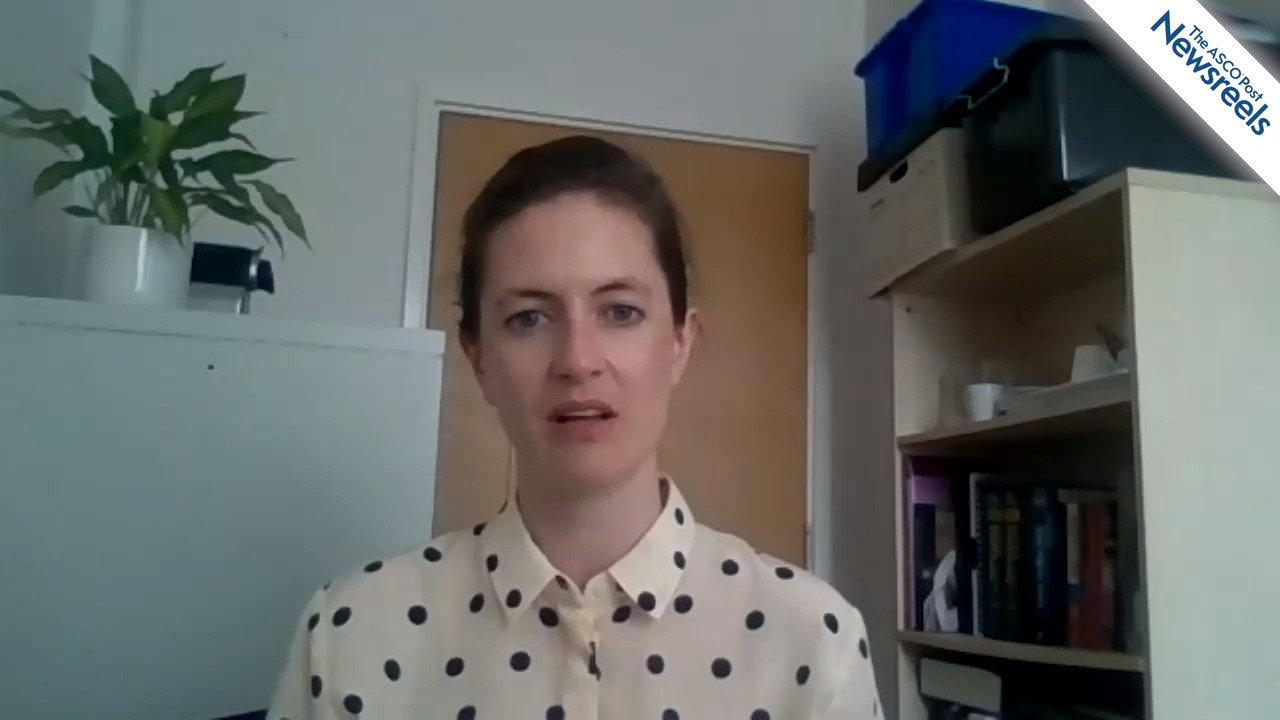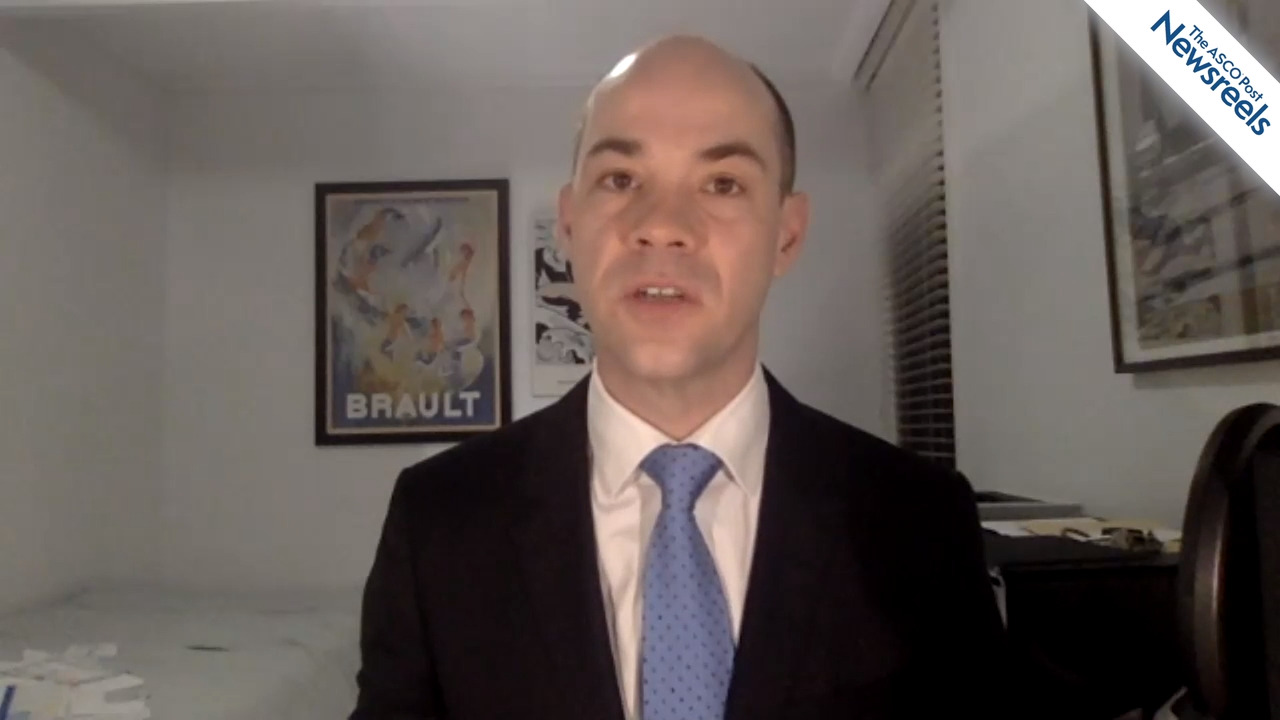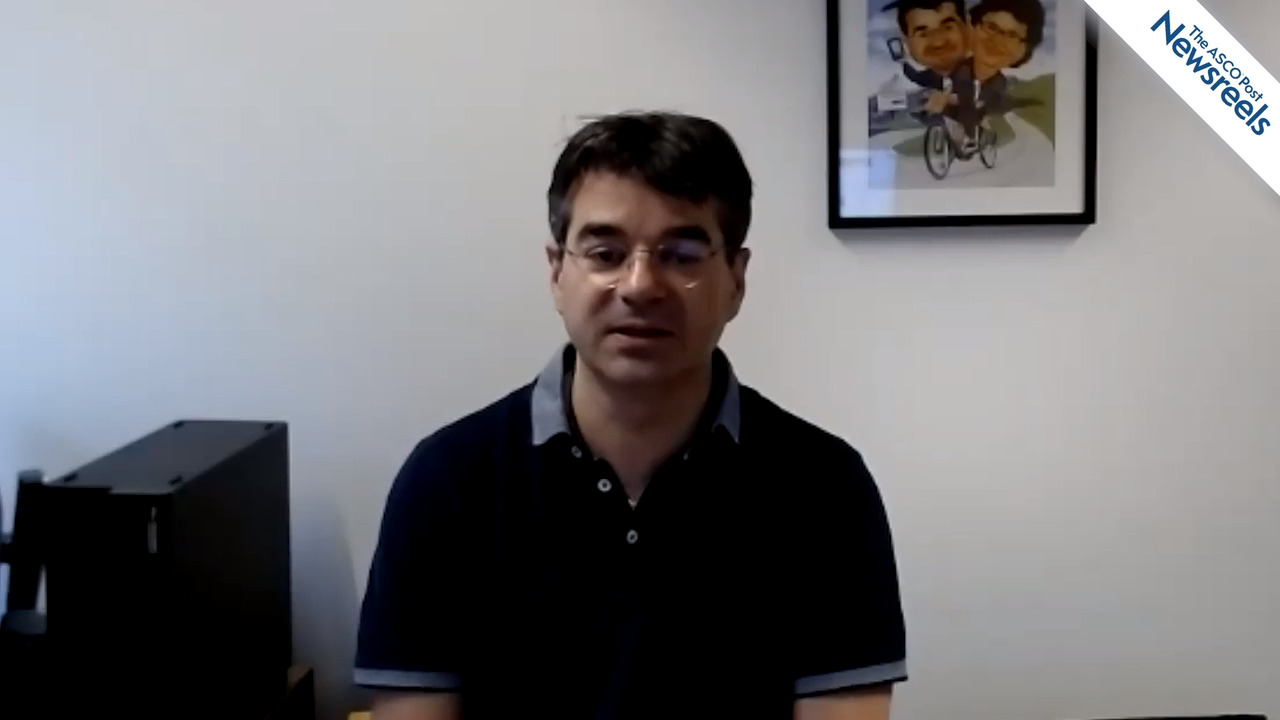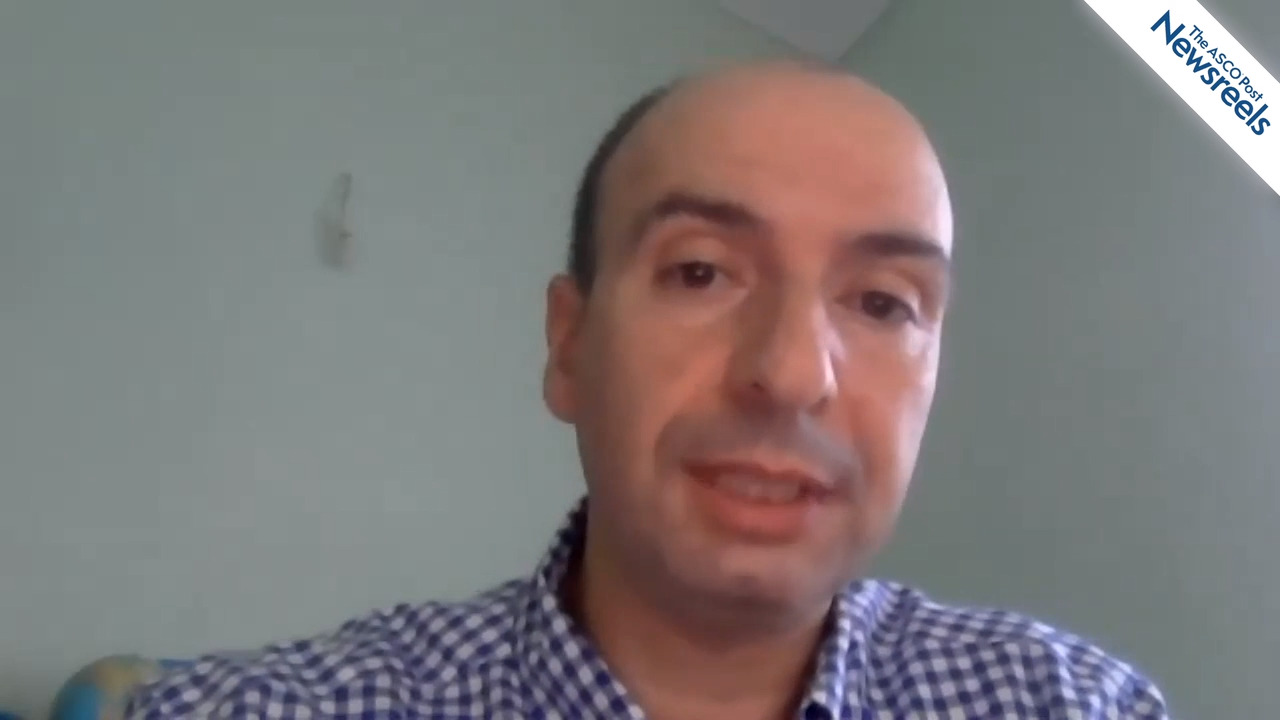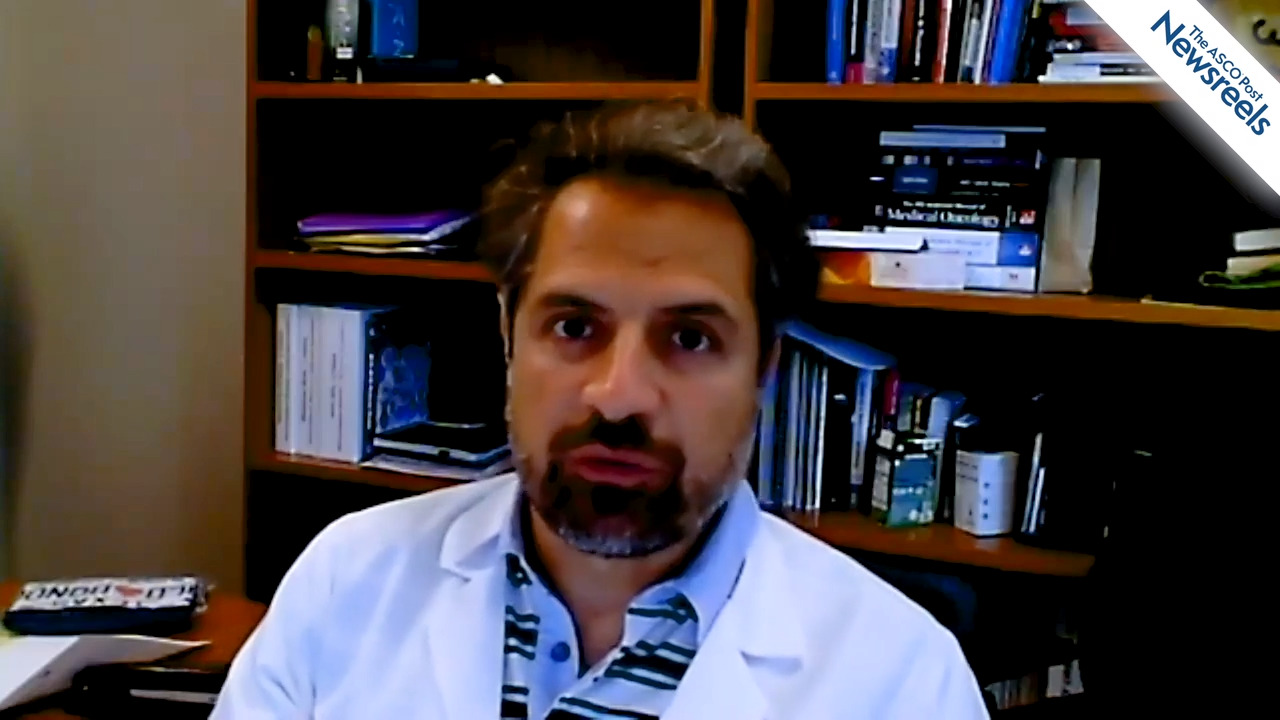Abhishek Maiti, MBBS, on AML: Decitabine and Venetoclax vs Intensive Chemotherapy
EHA25 Virtual
Abhishek Maiti, MBBS, of The University of Texas MD Anderson Cancer Center, discusses his analysis showing that 10-day decitabine and venetoclax led to superior outcomes compared with intensive chemotherapy in older patients with acute myeloid leukemia, with benefits most pronounced in people at high risk of treatment-related mortality (Abstract S141).
The ASCO Post Staff
Elizabeth H. Phillips, MD, of the University of Manchester and The Christie Hospital, discusses phase II findings showing inotuzumab ozogamicin plus rituximab, cyclophosphamide, vincristine, and prednisolone is a feasible and effective regimen for front-line treatment of high-risk patients with diffuse large B-cell lymphoma who are not eligible for standard chemotherapy (Abstract S232).
The ASCO Post Staff
Michael J. Dickinson, MBBS, DMedSc, of the Peter MacCallum Cancer Centre, discusses phase I dose-escalation study results on CD20-TCB, which showed activity, including durable complete responses, and manageable safety in heavily pretreated patients with relapsed or refractory non-Hodgkin lymphoma (Abstract S241).
The ASCO Post Staff
Arnon P. Kater, MD, PhD, of the University of Amsterdam, Cancer Center Amsterdam, discusses phase IIIb results from the VENICE I trial, which confirmed that venetoclax monotherapy can achieve deep responses and has a tolerable and manageable safety profile in patients with relapsed or refractory chronic lymphocytic leukemia (Abstract S156).
The ASCO Post Staff
Efstathios Kastritis, MD, of the University of Athens, discusses phase III findings of the Andromeda study. Adding daratumumab to cyclophosphamide, bortezomib, and dexamethasone resulted in deeper and more rapid hematologic responses and improved clinical outcomes in patients with newly diagnosed light chain amyloidosis (Abstract LB2604).
The ASCO Post Staff
Elias Jabbour, MD, of The University of Texas MD Anderson Cancer Center, discusses study findings that showed venetoclax and navitoclax with chemotherapy is well tolerated, with promising efficacy in heavily pretreated patients with relapsed or refractory acute lymphoblastic leukemia and lymphoblastic lymphoma. Clinical follow-up, correlative biomarker analysis, and expansion cohort enrollment to assess discontinuous dosing are underway (Abstract S116).
